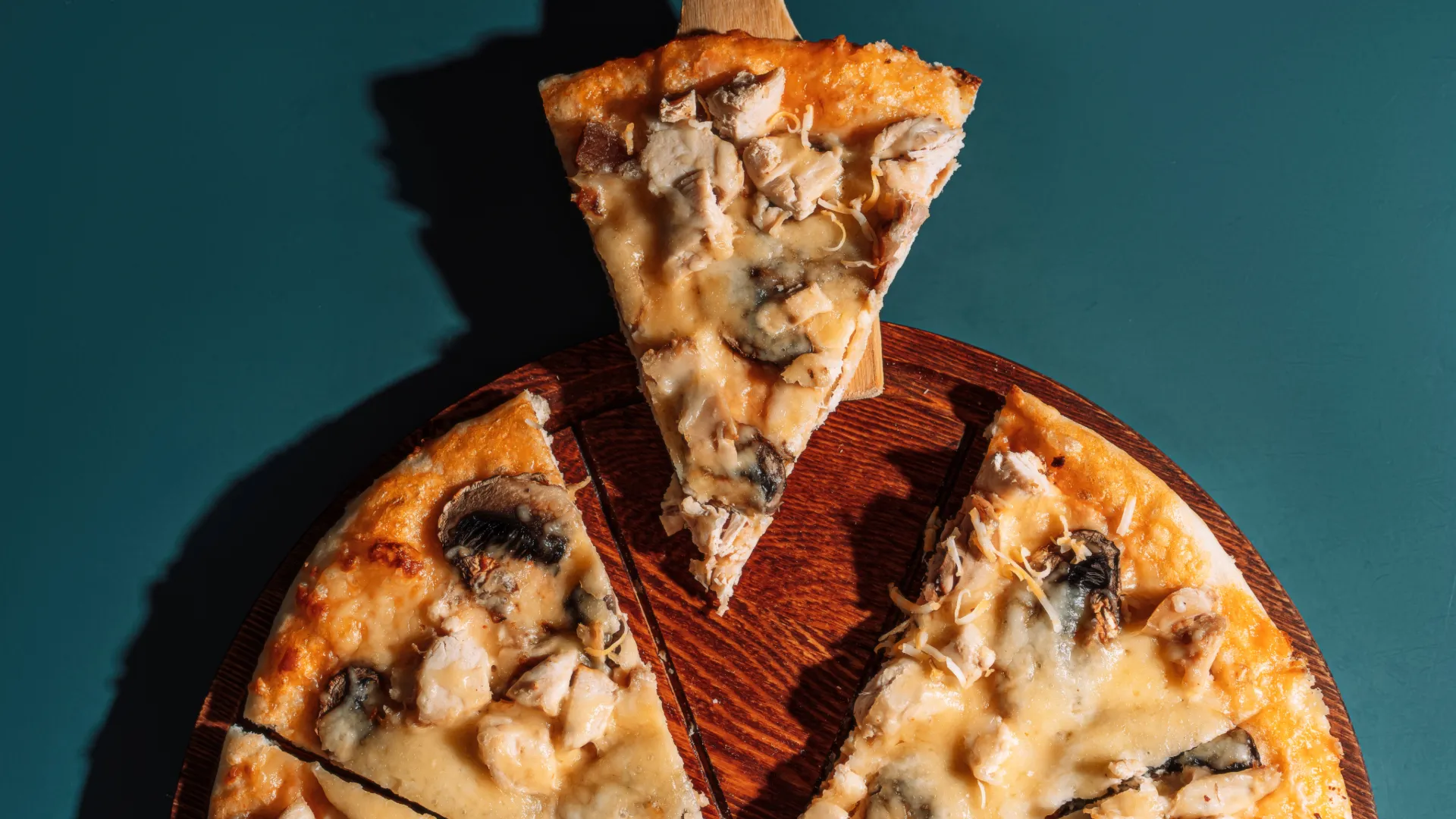Have you ever wondered what fuels the incredible brand loyalty behind one of the most recognized names in quick-service coffee and donuts? For many, one name immediately comes to mind: Dunkin’ Donuts. Founded in 1950 in Quincy, Massachusetts, this iconic brand has grown into a global powerhouse in the coffee and baked goods space, capturing the hearts (and taste buds) of millions.
But what makes Dunkin’ Donuts such a sought-after franchise opportunity among entrepreneurs? And what challenges come with the territory?
In this in depth guide, we’ll explore both the advantages and obstacles of owning a Dunkin’ Donuts franchise. From its mission to deliver high quality beverages and baked goods quickly, to its vision of providing convenience and fostering community, Dunkin’s brand values offer powerful appeal. At the same time, franchisees must navigate operational demands and market competition to succeed.
You’ll discover how Dunkin’s emphasis on innovation, consistency, and customer satisfaction can serve as both a major asset and a demanding responsibility. By the end, you’ll have a clearer picture of whether investing in a Dunkin’ Donuts franchise aligns with your business goals and what it truly takes to thrive in the competitive world of quick-service food and beverage.
A Whiff of History: From Quincy Roots to Global Coffee Fame.
Every iconic brand has an origin story and the rise of Dunkin’ Donuts is one of persistence, purpose, and perfectly brewed opportunity. Launched in the quaint town of Quincy, Massachusetts, this coffee and donut pioneer began with a simple mission: serve customers delicious donuts and high quality coffee fast.
That humble vision would eventually transform into a global quick-service empire, with thousands of locations across the United States and beyond. But what exactly fueled such meteoric growth?
Why Dunkin’ Donuts Grew So Quickly.
- Versatile Menu Expansion: Dunkin’ didn’t stop at donuts. As the brand matured, it broadened its offerings to include bagels, muffins, breakfast sandwiches, and specialty espresso drinks. This flexible, all-day menu allowed it to tap into evolving customer preferences and mealtime habits keeping foot traffic steady from morning to afternoon.
- Convenience and Speed: Core to Dunkin’s DNA is its ability to serve quality fast. Its operational efficiency, paired with flavorful, dependable products, made it a go-to choice for busy professionals and early risers looking for a quick, satisfying boost.
- Strong Community Ties:From day one, Dunkin’ positioned itself not just as a food stop, but as a community fixture. By supporting local events, youth sports, and charitable causes, the brand built enduring relationships that extended far beyond the counter. That local involvement has helped nurture a loyal customer base in neighborhoods across the globe.
Despite this impressive expansion and brand affinity, becoming a Dunkin’ franchisee involves more than a love for caffeine and confections. In the sections ahead, we’ll dive into the realities of owning a Dunkin’ Donuts franchise, including both its financial promises and operational challenges equipping you with the insight needed to decide if this legendary brand is the right fit for your entrepreneurial journey.
Why the Coffee Giant Keeps Drawing a Crowd.
What keeps millions of customers returning to Dunkin’ Donuts every day and why do so many entrepreneurs want in on the action? The answer lies in more than just caffeine and confections. Dunkin’s enduring popularity stems from a blend of emotional connection, product consistency, and smart business strategy.
For franchisees, this unwavering consumer demand represents a powerful advantage. Customers don’t just see Dunkin’ as a donut shop they see a daily ritual, a reliable stop, and a familiar face in their morning routine.
Core Strengths That Fuel Dunkin’s Franchise Appeal.
- Iconic Brand Recognition: Dunkin’ is a name that resonates. With minimal need for extravagant advertising, it has become synonymous with mornings. Its presence in pop culture, media, and even memes reinforces its status as a household name making customer acquisition that much easier for new franchisees.
- Wide Menu Variety: Donuts might be the classic go-to, but Dunkin’ continues to broaden its culinary appeal. From signature lattes and cold brews to hearty breakfast sandwiches, the brand attracts a wide range of customers from casual snackers to dedicated coffee connoisseurs.
- High Repeat Traffic: The business model is built around daily routines. Whether it’s an early morning pick me up, a lunchtime snack, or an afternoon energy boost, Dunkin’ gives customers multiple reasons to return more than once a day.
- Adaptation to Market Trends: Dunkin’s evolution is one of its greatest strengths. By rolling out plant based menu items, seasonal flavors, and limited-time innovations, the brand stays culturally and nutritionally relevant continually engaging both loyal fans and curious newcomers.
These standout traits make Dunkin’ an attractive investment on paper. But as with any franchise, long-term success depends on navigating the brand’s operational expectations, franchise requirements, and the financial responsibility that comes with joining one of the most recognized names in quick-service food and beverage.
The Alluring Advantages of Owning a Dunkin’ Donuts Franchise.
For entrepreneurs who appreciate the strength of a legacy brand and understand the dynamics of the quick-service restaurant (QSR) industry, owning a Dunkin’ Donuts franchise presents a compelling opportunity. With brand prestige, loyal customers, and strong operational systems, Dunkin’ offers more than just a chance to serve coffee; it provides a pathway to long-term business growth.
Let’s explore the key advantages that make this franchise model so attractive.
1. Robust Brand Awareness.
Very few franchises can match the global recognition of Dunkin’ Donuts. With decades of consistent branding, advertising, and grassroots community presence, new franchisees inherit a built in customer base. Unlike independent coffee shops that must work tirelessly to build a name, Dunkin’ owners start with a reputation boost and instant credibility.
2. Widespread Customer Loyalty.
Loyalty is one of the brand’s greatest assets. Thanks to its broad menu and deep rooted presence in people’s daily routines, Dunkin’ stores see strong repeat traffic. This predictable customer flow can translate into stable daily revenues and reduce the volatility often associated with newer or niche coffee ventures.
3. Comprehensive Training & Ongoing Support.
Dunkin’ sets franchisees up for success through robust training programs that cover:
– Store operations
– Equipment handling
– Hiring and leadership strategies
– Local marketing techniques
On top of that, franchisees receive ongoing corporate support for seasonal rollouts, promotional campaigns, and industry insights ensuring they stay ahead of consumer trends.
4. Flexible Menus with Proven Systems.
While the brand is known for consistency, Dunkin’ also allows for regional menu customization, giving franchisees the ability to tailor offerings to local tastes. With a reliable operational framework in place, owners can stay agile while still following a proven playbook that helps maximize efficiency and customer satisfaction.
5. Multi Unit Growth Potential.
For ambitious entrepreneurs, Dunkin’ offers a clear pathway to multi-unit ownership. Managing multiple locations under one franchise agreement can:
– Improve supply chain logistics
– Streamline staffing across stores
– Amplify local brand presence
Though this route demands advanced operational skill and commitment, the scalability of the Dunkin’ model allows experienced operators to build a significant business empire within the QSR landscape.
The Financial and Operational Hurdles.
While the allure of joining a world-renowned brand is strong, potential franchisees must enter the process with eyes wide open. Owning a Dunkin’ Donuts franchise is a serious commitment, one that combines significant financial investment with a tightly controlled operational model.
Here are some of the key challenges that prospective franchise owners should carefully evaluate before moving forward.
1. High Initial Investment.
Opening a Dunkin’ location comes with hefty startup costs, which include franchise fees, build-out and construction expenses, equipment purchases, and real estate costs. Total investments can range from $438,000* to over $1.8 million*, depending on location and store type. For many first time entrepreneurs, this capital requirement can be a major hurdle and one that necessitates careful financial planning and lending support.
2. Ongoing Royalty and Marketing Fees.
In addition to the initial investment, franchisees are required to pay ongoing royalties and national marketing contributions. These fees support the brand’s advertising, innovation pipeline, and operational infrastructure, but they also reduce profit margins. Owners must factor these consistent expenses into long term cash flow projections.
3. Rigorous Real Estate Selection Process.
The success of a quick-service location depends heavily on its surroundings and Dunkin’ knows it. That’s why the brand enforces a stringent site selection process, requiring deep market research and approval from corporate. While this vetting protects franchisees from choosing low-performing locations, it can delay launch timelines and increase upfront costs.
4. Strict Brand Standards and Limited Flexibility.
Dunkin’s global success is built on operational consistency, and it fiercely protects that reputation. Franchisees must follow strict rules for store design and layout, uniforms and signage, and product preparation and presentation. While this structure ensures uniform quality, it can feel restrictive to entrepreneurs looking for creative freedom. Deviations from guidelines are rarely permitted, making this franchise best suited for owners who thrive within defined systems.
5. Preference for Multi-Unit Operators.
Although single-store ownership is possible, Dunkin’ often prioritizes candidates who plan to open multiple locations. This can be a barrier for entrepreneurs who lack the financial backing or operational team to scale quickly. Multi-unit ownership demands greater capital, staffing infrastructure, and managerial sophistication, placing additional pressure on new franchisees.
Owning a Dunkin’ Donuts franchise can be a high-reward opportunity, but it’s not for the faint of heart. Understanding the operational demands, financial obligations, and brand expectations is key to making an informed decision and to preparing for a successful journey ahead.
Training, Culture, and the Role of Continuous Innovation.
One of the most appealing aspects of joining a Dunkin’ Donuts franchise is the comprehensive training and operational support that comes with it. For many entrepreneurs, especially those new to food service, having access to a proven system can significantly ease the challenges of launching and scaling a quick-service business.
However, the same structure that ensures consistency across locations can feel limiting for owners accustomed to creative or independent business management. Still, for those who align with the brand’s system-first approach, the framework offers clear advantages.
Key Components of Dunkin’s Franchise Support System.
- Initial Franchise Education: New franchisees participate in a structured onboarding program that covers all aspects of store management. This includes training on daily operations, proper equipment use, team management, and strict adherence to brand guidelines.
- Ongoing Assistance: After the store is up and running, franchisees continue to receive support from corporate field teams and advisors. These professionals help address operational challenges, troubleshoot supply chain issues, and provide coaching on maintaining efficiency and compliance
- Market-Driven Innovations: Dunkin’ invests heavily in research and development to keep its offerings relevant. Franchisees are regularly briefed on:
– New product introductions
– National and regional marketing campaigns
– Insights into consumer behavior and evolving dietary preferences
This steady stream of updates ensures the brand stays current but also requires owners to be nimble in adjusting operations and marketing tactics.
Dunkin’s support system and innovation pipeline foster a culture of continuous improvement. From expanding plant-based menu options to embracing mobile ordering and sustainability initiatives, the brand consistently pushes for evolution. While this helps maintain strong brand relevance, it also means franchisees must be prepared to adapt rapidly to new initiatives and consumer expectations.
For franchisees who embrace growth and operational discipline, this culture can be empowering. For others seeking greater autonomy, the pace of change and top-down decision-making may feel demanding.
Pros vs. Cons of Dunkin’ Donuts: Putting the Cards on the Table.
To help you see a concise overview of advantages and drawbacks, check out the table below. This snapshot simplifies some of the most critical discussion points about owning a location under this brand.
| Pros | Cons |
| Immediate brand recognition | Significant initial investment* |
| High volume of repeat customers | Ongoing royalty and marketing fees* |
| Comprehensive training and support programs | Rigorous real estate criteria and site approval |
| Broad menu offerings with room for local adaptations | Restricted creativity due to strict brand standards |
| Potential for multi-unit expansion | Heavy preference for multi-unit ownership from the company |
*Data is based on the company’s Franchise Disclosure Document (FDD). Fees, costs, and figures are estimates and may vary based on location and other factors.
As you can see, it’s an appealing model for entrepreneurs ready to take on more formal procedures and higher financial commitments. However, it’s crucial to weigh these considerations against your personal risk tolerance, access to capital, and willingness to operate within a structured framework.
Important Figures and Fees: A Quick Snapshot of a Dunkin’ Donuts Franchise.
Before diving into ownership, you’ll need a clear understanding of the financial requirements. While exact figures can shift over time, the table below—drawn from recent estimates—offers a broad outline of key costs associated with this donut-focused business.
| Name of Fee | Low | High |
| Initial Franchise Fee | $40,000* | $90,000* |
| Building Costs | $180,000* | $600,000* |
| Site Development Costs | $13,000* | $350,000* |
| Additional Development Costs | $12,000* | $90,000* |
| Equipment, Fixtures & Signs | $189,000* | $300,000* |
| Restaurant Technology System | $65,000* | $118,000* |
| Licenses, Permits, Fees & Deposits | $3,500* | $7,500* |
| Real Estate Costs | Variable | — |
| Opening Inventory | $8,000* | $20,000* |
| Miscellaneous Opening Costs | $9,500* | $70,000* |
| Uniforms | $400* | $3,000* |
| Insurance | $4,500* | $16,000* |
| Travel & Living Expenses While Training | $2,000* | $50,000* |
| Marketing Start‑Up Fee | $0* | $10,000* |
| Additional Funds for First 3 Months of Operation | $0* | $108,000* |
| ESTIMATED TOTAL (doesn’t include real‑estate costs) | $526,900* | $1,832,500* |
Numbers like these might feel overwhelming. Yet, for many who successfully operate multiple units, the payoff can be worth the initial shock. Be sure to consult the latest figures from updated resources and speak with existing owners to gauge the real-world implications.
The Balancing Act: Choosing the Right Path.
Establishing a strong foothold in the competitive world of coffee and baked goods franchising is no small task. While a Dunkin’ Donuts franchise offers undeniable advantages such as a built-in customer base, established marketing infrastructure, and refined operational systems it also demands significant financial investment, commitment to corporate guidelines, and a willingness to embrace a high-paced business environment.
Balancing these pros and cons is essential for any entrepreneur considering whether Dunkin’ is the right fit.
Steps to Take Before You Invest in a Dunkin’ Donuts Franchise.
- Self-Assessment: Start by evaluating your personal and professional goals. Are you comfortable with long-term financial commitments? Can you work within a tightly structured operational model? Do you thrive in systems that prioritize consistency over creativity?
- Due Diligence: Immerse yourself in the Dunkin’ culture. Speak with current franchisees, learn about their day-to-day responsibilities, and research your target market. Understanding local demand and operational realities is critical to making an informed decision.
- Business Plan Development: A comprehensive business plan is more than just a formality, it’s a foundational tool. Outline your financial strategy, staffing needs, marketing approach, and growth projections. Lenders and Dunkin’s corporate team will expect to see a detailed roadmap before approving your franchise application.
- Negotiation and Signing: Once you’re ready to proceed, you’ll enter the formal phase: signing the franchise agreement, securing your location, and beginning the official onboarding and training process. This step also includes aligning with the brand’s real estate, design, and operational standards.
- Grand Opening Preparations: Before opening day, you’ll set up your store according to corporate layout specifications, purchase required equipment, and onboard staff. Ensuring compliance with Dunkin’s standards at this stage is essential for a smooth launch and long-term operational success.
By following this structured process, you position yourself for a smoother transition into franchise ownership. While challenges are inevitable in any large-scale business venture, a methodical approach backed by brand support can significantly reduce risks and increase your chances of building a thriving operation.
If your goals align with the Dunkin’ ethos of speed, consistency, and community, this franchise may be the perfect platform to build your next business chapter.
Final Bites of Wisdom: Taking the Leap with Dunkin’ Donuts.
Dunkin’ Donuts began with a simple goal of serving fast, satisfying coffee and donuts and has since grown into a global franchise brand rooted in consistency, customer satisfaction, and innovation. For aspiring franchisees, it offers a compelling mix of benefits and challenges.
On the upside, Dunkin’ provides instant brand recognition, strong customer loyalty, robust training, and the potential for multi-unit growth. These factors can give new owners a powerful edge in the quick-service market. However, success comes at a cost. High startup expenses, ongoing fees, strict operational standards, and a preference for experienced multi-unit operators make this a serious undertaking.
Whether Dunkin’ is the right fit for you depends on your financial readiness, your willingness to work within a structured system, and your commitment to the fast-paced demands of the coffee and food service industry. For those who meet these criteria and find the right market, the opportunity can be both stable and scalable.
If you’re ready to explore franchise ownership and want to learn more about what it takes, contact us today for expert insights and next steps. Your journey into the world of franchising could be just beginning.



























